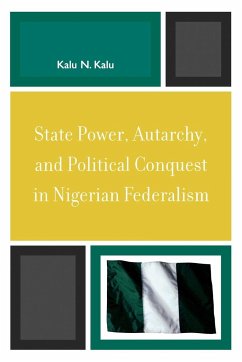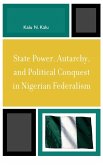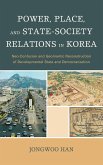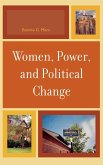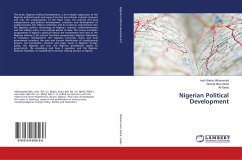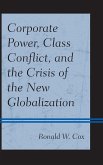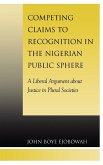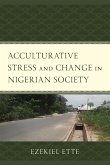This book offers a comprehensive analysis of the evolutionary path of Nigeria's political development. Drawing from the historical themes that existed before and after independence, Kalu N. Kalu elucidates the challenging role of an oil-dependent economy in the struggle for control of state power in the face of political corruption, clientelism, and market failures.
Hinweis: Dieser Artikel kann nur an eine deutsche Lieferadresse ausgeliefert werden.
Hinweis: Dieser Artikel kann nur an eine deutsche Lieferadresse ausgeliefert werden.
Kalu is a prolific author with wide-ranging interests...Recommended. CHOICE, January 2009 Kalu N. Kalu's State Power, Autarchy, and Political Conquest in Nigerian Federalism boldly challenges the established wisdom that ethnicity drives conflict and holds back Nigeria, pushing us instead to look at what he sees as the structural defects in the Nigerian federation, for which he prescribes a consociational remedy. This timely book offers an extensive survey of the literatures on Nigerian history, political economy, democracy, political culture, and ethno-religious conflicts to give us multiple perspectives on the multifaceted problems preventing progress in Nigerian political development. Through this, he gives readers much to consider on what the proper crafting of political institutions would entail if democracy is to survive in Nigeria, with implications for Africa writ large. Constitutional scholars will find Kalu's line-by-line commentary on the Nigerian Constitution of particular interest. -- Darren Kew, associate professor, University of Massachusetts-Boston

